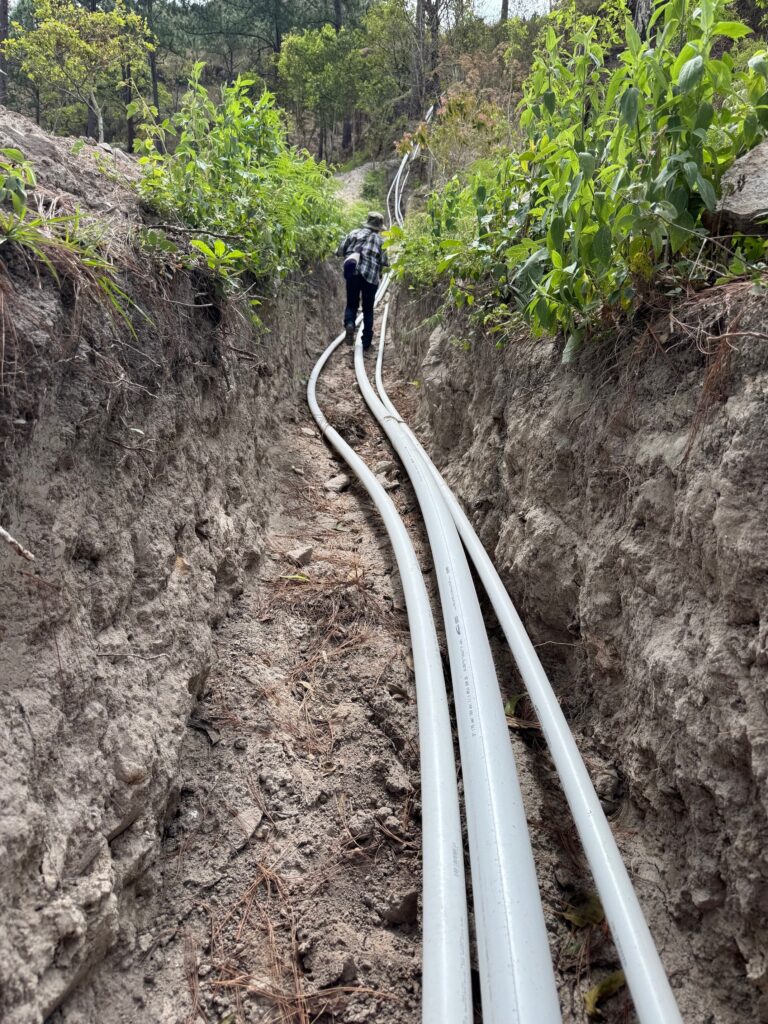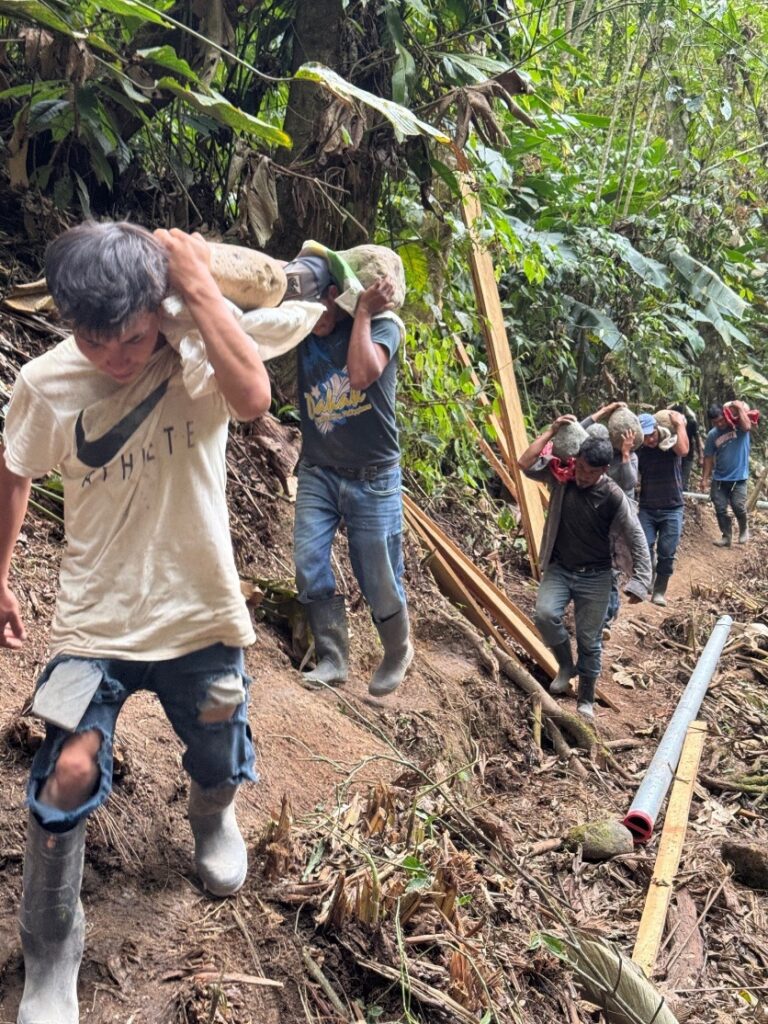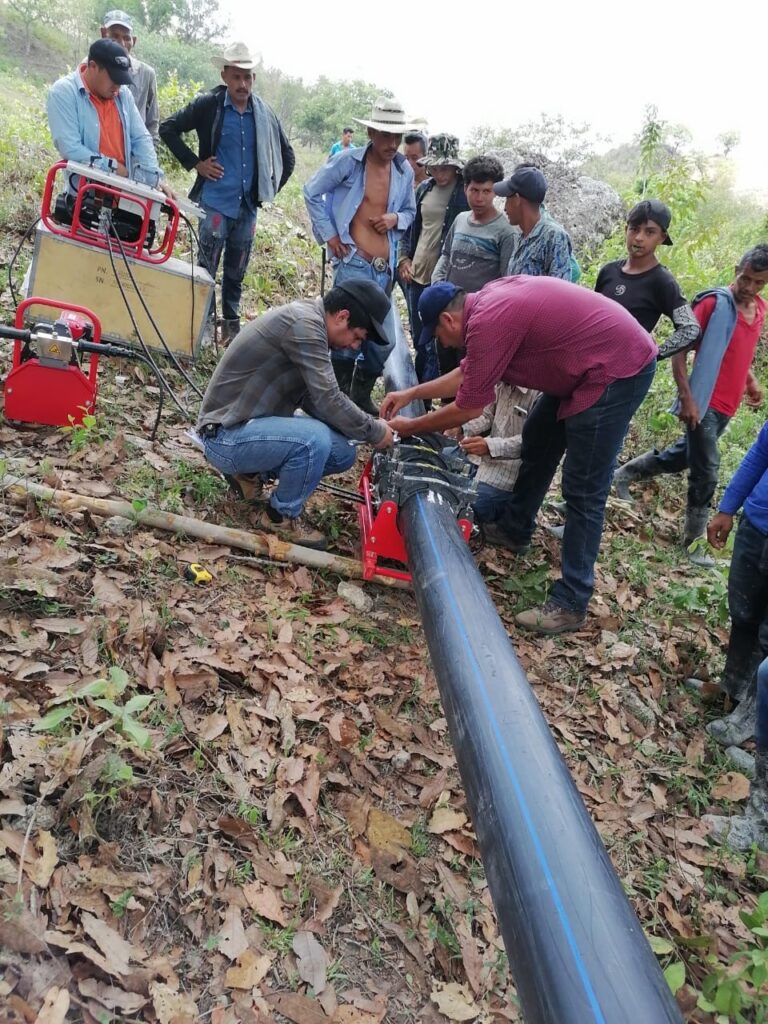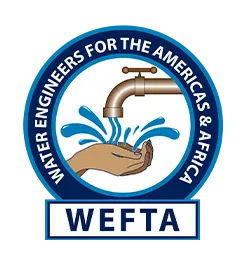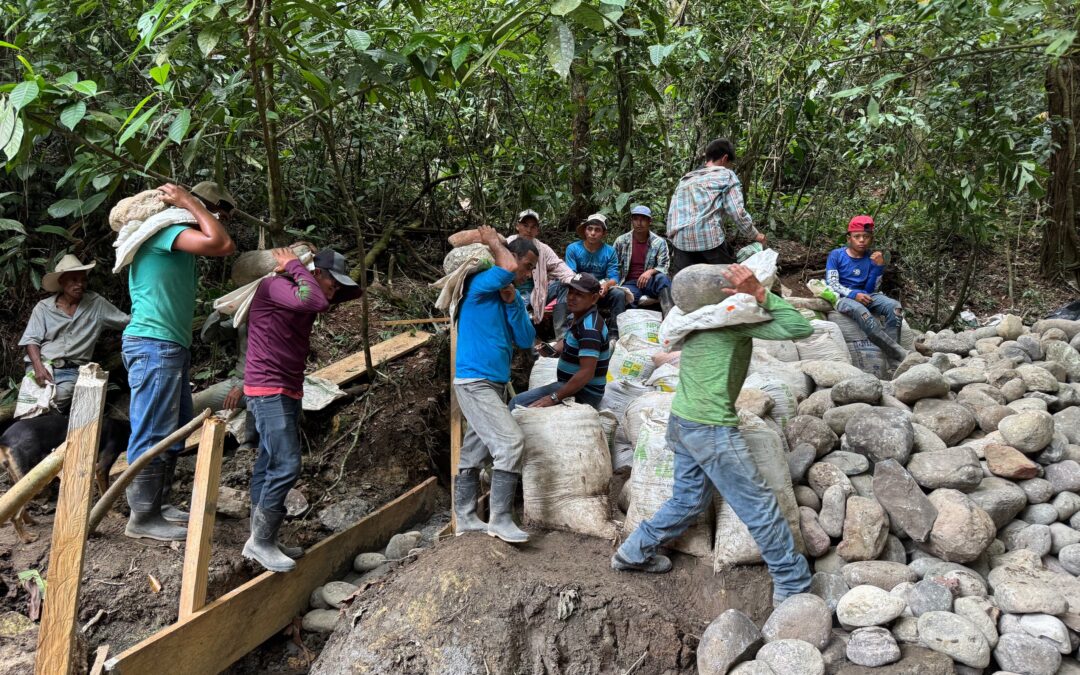WEFTA in Honduras
WEFTA has been engaged in safe water provision in rural Honduras for over 20 years. As part of this abiding commitment, our volunteers travel to villages in the country to evaluate and support new community-managed water systems. Examples of WEFTA’s recent work in three Honduran communities are highlighted below.
Building Back in La Iguala
In April 2025, long-time WEFTA volunteer Andrew Robertson met in La Iguala with leaders of the villages of Llano Largo, Quioco, and Guadalupe. Andrew was there to address a serious issue. After four years of smooth operation, a rainy season landslide had destroyed the river intake of the water system that serves the combined village population of 1,700. After extensive inspection and discussion, Andrew and the local leaders crafted a sound plan to rebuild the intake and repair the transmission line using local funding.
A Water System for Santa Ana Las Vegas
The village of Santa Ana Las Vegas, population 960, in La Iguala, has no water system. After visiting the village in August of 2024, WEFTA completed the design for Phase 1 of the project, consisting of a river diversion and water transmission line. Andrew visited the village in April 2025 to present the design to the community and begin construction. He reported villagers were doing their part by carrying rocks to the site of the dam, which will be constructed by hand.
Complex Water Supply Issues in Policarpo on the island of Roatan
Recently, WEFTA volunteers Dave and Meredith Caley spent five days in Policarpo Galindo, Roatán, to assess the community’s struggling water system. An inconsistent water supply is forcing residents to either store large amounts of water or purchase expensive bottled water to meet their needs. Andrew Robertson noted that a few years ago, WEFTA installed a central chlorinator and replaced oversized pumps in three wells. He discovered the chlorinator is rarely used because chlorine tablets are not often purchased. During their visit, Dave and Meredith met with local stakeholders to help build a pathway to legal, community-led water management that emphasizes transparency, accountability, and long-term sustainability. The situation in Policarpo bears monitoring and it is possible there will be further WEFTA involvement with engineering solutions.
Critical tasks performed by WEFTA volunteers in Honduras
In addition to the services already described, WEFTA volunteers provide many forms of assistance to Honduran communities with their water needs, including:
- Troubleshooting reduced water flow caused by tampering, leaks, and airlocks in transmission lines
- Guidance on the optimum composition of piping, valves, and storage tanks
- Training on water chlorination and chlorine monitoring
- Siting new catchments and improving watershed protection
- Coordinating with other aid organizations, such as World Vision, to provide technical assistance
Sustainable water systems are the gold standard. Even though facilities are locally managed by trained operators, WEFTA maintains communication post-construction through collaboration with in-country partners and the Circuit Riding program. WEFTA is available for ongoing assistance when needed. Dedicated volunteers Andrew, Dave, and Meredith combine their engineering expertise with community collaboration in rural Honduran communities to further WEFTA’s mission of supporting safe, sustainable, locally managed water solutions. Their work is producing abundant benefits in the form of a much-improved quality of life to growing numbers of rural Hondurans.
Read the trip reports and logs from recent Honduras project site visits:
April 2025 Honduras Site Visits (by Andrew Robertson, P.E., WEFTA Volunteer)
April 2025 Honduras – Policarpo Site Visit (by Meredith Caley, M.A., and Dave Caley, P.E., WEFTA Volunteers)
